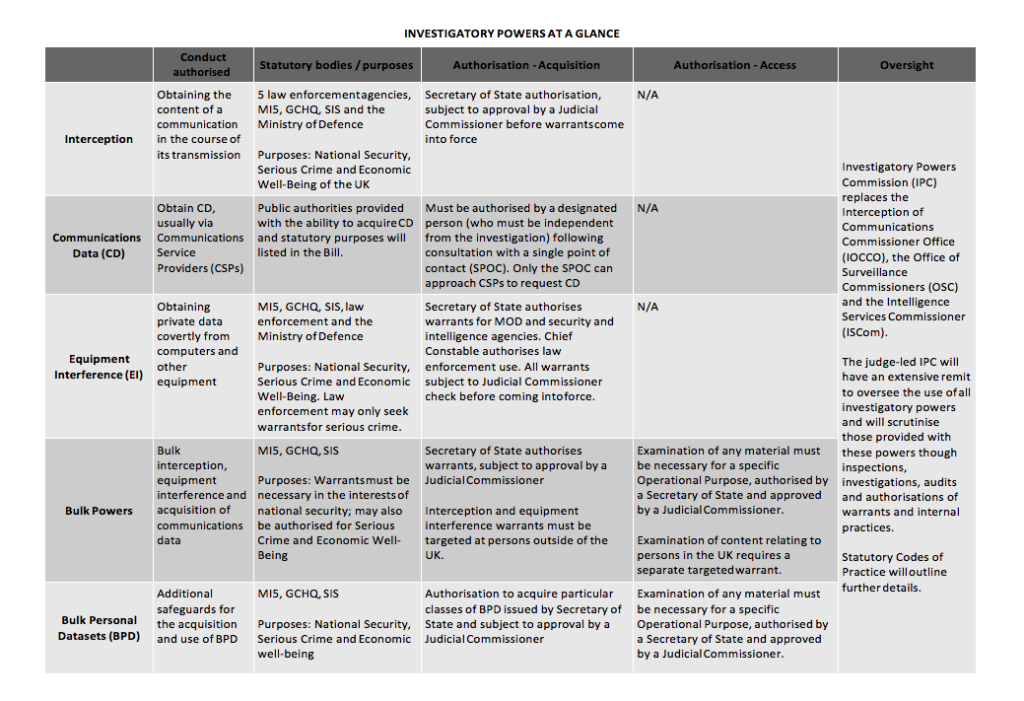This afternoon the UK Home Secretary, Theresa May, made a statement on the draft Investigatory Powers Bill in the House of Commons
The Home Secretary opened her statement by showing her recognition of the digital disruption which is going on across the UK and across the world: “We live in a digital age. Technology is having a profound effect on society. Computers are central to our everyday lives. Big data is reshaping the way we live and work. The internet has brought us tremendous opportunities to prosper and interact with others.”
Challenging environment and need for robustness:
She then went on to explain that this technological innovation has also brought about challenges such as organised criminals and terrorists using the internet to communicate: “In the past twelve months alone six significant terrorist plots have been disrupted here in the UK, as well as a number of further plots overseas. The frequency and cost of cyber attacks is increasing, with 90% of large organisations suffering an information security breach last year.”
End to end encryption is not banned from the bill
Initial discussions around the draft of the Bill, raised some concerns for digital businesses around the issue of end-to-end encryption and whether this will be threatened. However, today’s statement from Theresa May made clear that end-to-end encryption will not be banned, as part of the Bill: “It will not ban encryption or do anything to undermine the security of people’s data.”
- it will bring together all of the powers already available to law enforcement and the security and intelligence agencies to obtain communications and data about communications
- it will radically overhaul the way these powers are authorised and overseen:
- it will introduce a ‘double-lock’ for interception warrants, so that, following Secretary of State authorisation, these – and other warrants – cannot come into force until they have been approved by a judge
- it will create a powerful new Investigatory Powers Commissioner to oversee how these powers are used
- it will make sure powers are fit for the digital age: it will make provision for the retention of internet connection records for law enforcement to identify the communications service to which a device has connected
Timeline
- The proposals of the Bill will now be subject to further consultation and pre-legislative scrutiny by a Joint Committee of Parliament
- A revised Bill will then be introduced to Parliament in the spring, where it will receive careful Parliamentary scrutiny
- The Data Retention and Investigatory Powers Act will cease to have effect from 31st December 2016. It is the Government’s intention to pass a new law before that date
Investigatory powers at a glance (click to enlarge):
Warrants
Here is what the Home Secretary said on authorisation:
“Authorising warrants is one of the most important means by which I and other Secretaries of State hold the security and intelligence agencies to account for their actions.
Currently the Secretary of State will need to be satisfied that an activity is necessary and proportionate before a warrant can be issued. But in future, the warrant will not come into force until it has been formally approved by a judge.
This will place a “double lock” on the authorisation of our most intrusive investigatory powers. Democratic accountability, through the Secretary of State, to ensure our intelligence agencies operate in the interests of the citizens of this country, and the public reassurance of independent, judicial authorisation.
This will be one of the strongest authorisation regimes anywhere in the world.”
Internet companies storing data
To ensure authorities have access to the information they need, internet service providers will be required to store the top-level information on their customers’ browsing histories for 12 months. This does not include tracking every page that you visit, just the domain of each website.
Tech City UK’s response
Tech City UK CEO, Gerard Grech, commented: “The issues covered in this draft Bill are important matters for the tech community and will be the subject of much debate in the coming weeks and months. The British government is pro-actively engaging the tech community on the issues that matter, such as end-to-end encryption and warrants and will welcome views from across the board.”
Share your opinions with the Home Office by emailing: [email protected]
You can read the Home Secretary’s full statement here: https://www.gov.uk/government/speeches/home-secretary-publication-of-draft-investigatory-powers-bill
Check out this piece from BuzzFeed Special Correspondent, James Ball, with a summary of the whole Bill: http://www.buzzfeed.com/jamesball/here-are-the-spying-powers-uk-authorities-will-have-if-there#.il3q6Nk6q





